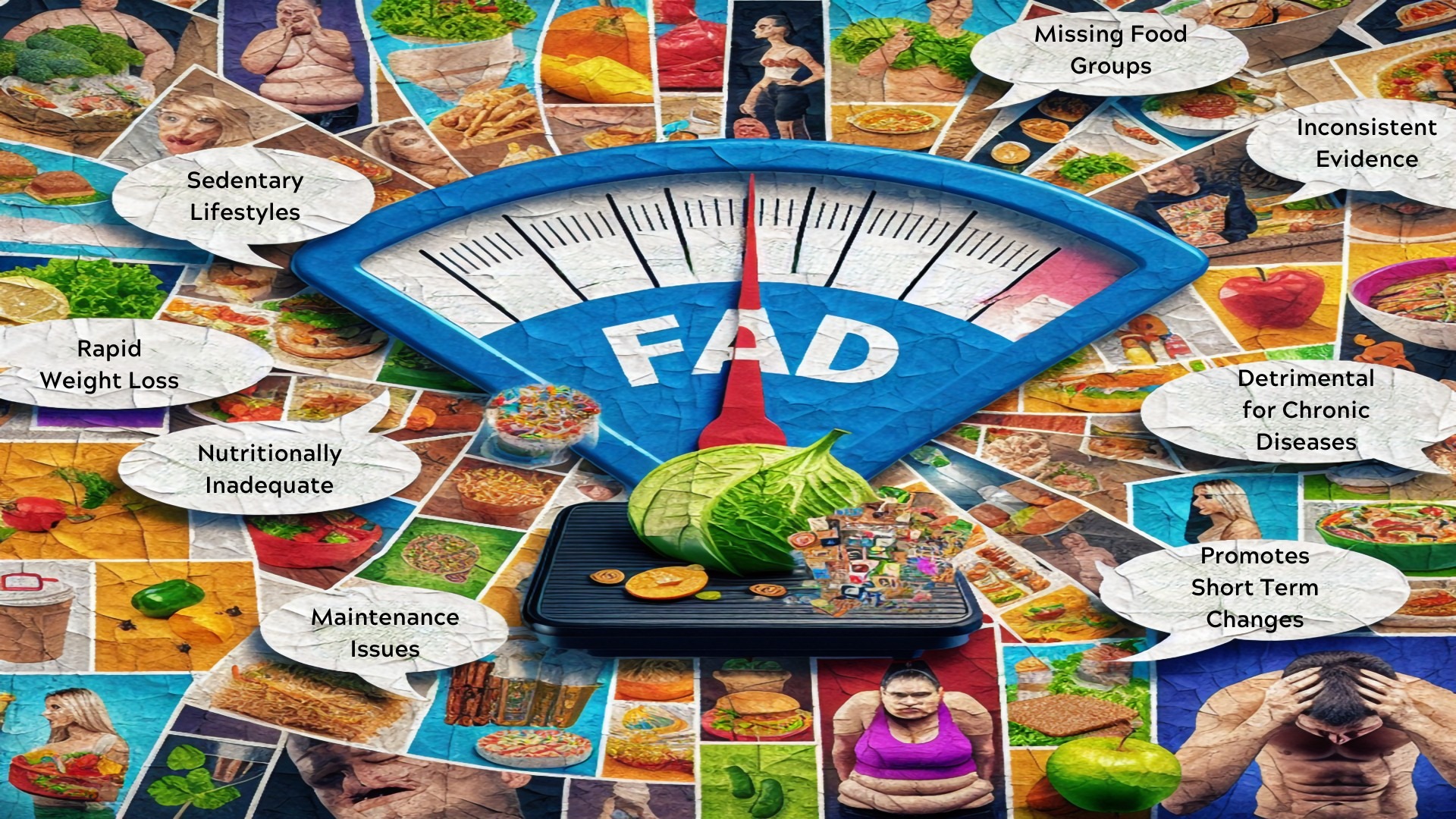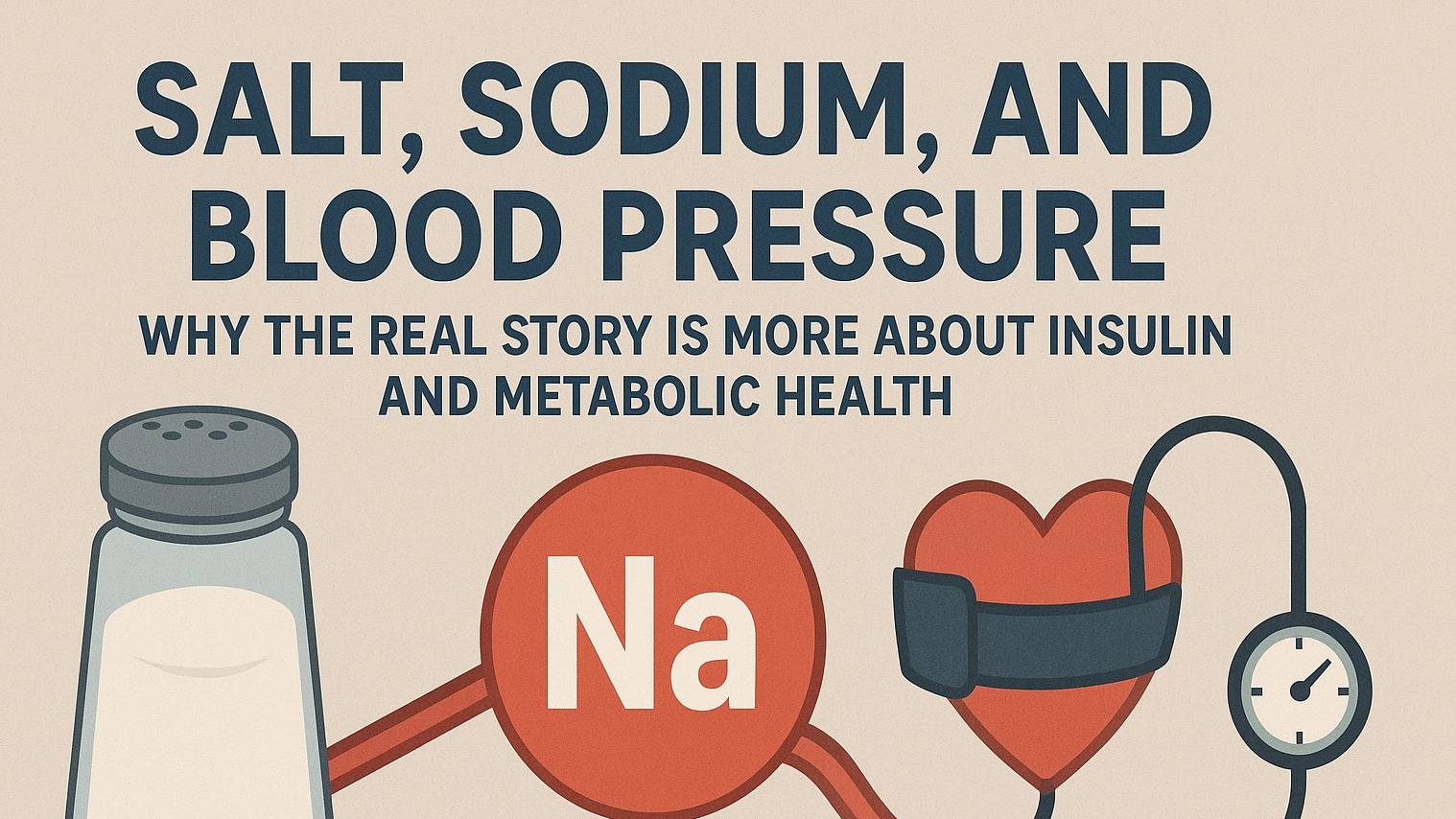
Fad Diets: The Reason Many New Year’s Resolutions Eventually Fail
In this week’s live chat Carlin talked about New Year’s resolutions and broke down steps to help you achieve them. If you don’t follow those steps, that New Year’s resolution may be doomed to fail. It may help you to know you aren’t alone. According to U.S. News & World Report, a whopping 80% of New Year’s resolutions fail by February.
The Boston Medical Center says of an estimated 45 million Americans who go on a diet annually, 50% use fad diets. Imagine being able to lose weight without counting calories or exercising -- just follow the rules and the weight will just start falling off. Sounds too good to be true? It usually is! Unfortunately, no pill, powder, or foods can magically burn fat. No superfood is going to alter your genetic code, and your blood type can’t affect your diet.
Although fad diets have been proven not to work many times over, people are always looking for a quick fix.
What’s Wrong With Fad Diets?
Fad diets are tempting, and the advertisements for the fad diets lure you in with grandiose claims of weight loss. They lead you to believe there is no need to worry about counting calories or exercising, just follow the rules and the extra pounds fall right off. They don't work, so don't fall for the fad diet hype.
Fad diets become popular because they sometimes work for a short time – weight does come off, but it’s usually from loss of water or lean muscle. While you may lose a decent amount of weight initially, the restrictions imposed by fad diets are unhealthy and unrealistic to maintain – ultimately leading to failure.
Fad diets are bad because they don't address the problems that caused you to gain weight in the first place. Once you're through with the fad diet, you'll probably gain the weight back as you reestablish old eating habits. Fad diets are also bad because they usually require the elimination of foods that aren't bad for you, which can result in nutritional deficiencies.
All of our posts are geared toward different facets of health and nutrition and how to change your thought process about what is good for your overall health.
Signs It's A Fad Diet
How do you know you are looking at a fad diet? Typical signs include:
- Claims of fast and easy weight loss.
- No need for exercise.
- Elimination of certain food groups or "bad foods."
- Requires the purchase of dietary supplements labeled as fat burners, metabolism boosters, or weight loss aids
- Tells you that foods need to be correctly combined for proper digestion to occur.
- Highlights specific foods, such as grapefruit, or special soup.
You’ve probably heard the term ‘YO-YO’ diet. Some people develop a pattern of weight cycling, which is losing weight, gaining weight, and then losing it again. This pattern can be repeated for many years. Some experts believe that weight cycling is unhealthy. It may increase the risk of developing certain diseases, including cardiovascular disease and type 2 diabetes.
Short-term diets are not nearly as effective as adopting a healthy, balanced diet that you can follow for a lifetime. That combined with exercise can provide amazing long-term health benefits.
Eliminating Or Combining Certain Food Groups?
Some diets require you to eliminate certain food groups. Some of these dietary authors claim humans haven't evolved enough as a species to eat wheat, and others say specific foods don't match certain blood types. These are interesting hypotheses, but there's not enough reliable evidence that supports those claims. Certain health conditions require the elimination of particular food groups due to allergies or metabolic disorders such as celiac disease, but most of us should choose foods from each food group every day.
A few fad diets require you to combine specific types of foods. They claim that your body can't digest carbs at the same time it digests proteins or with fats. If you do your own research you will find that those claims are false. Your digestive system utilizes specific enzymes for digestion of different foods, and they don't cancel each other out. In reality, they all work very well together.
What About Magical Fat-Burners?
Don't fall for the claims of extreme weight-loss "fat-burner" supplements. Take your eyes off the pictured individual who just lost 30 pounds in a few weeks! Then look down at the bottom of the ad. You will see a disclaimer in tiny letters, "weight-loss is not typical, your results may vary." That really means most people don't lose much weight.
What Is The Best Way To 'Diet?'
Start by getting the word "diet" out of your brain. You want to make a lifestyle change that will allow you to maintain a healthy weight by eating nutrient-dense foods from all of the food groups in the amounts that are right for your body. And you don't need to completely eliminate anything. At times we will even discuss how occasional cheat meals are not only ok, but give you something to look forward to for that additional motivation. Slow down and give yourself enough time to really change the way you eat. You didn't gain 30 pounds in one month so don't expect to lose it all so quickly. Determine how many calories you need each day to reach and maintain a healthy weight. Keeping track of everything you eat and drink with a food diary helps many people break previously unhealthy cycles. Does that mean a forever diary? No, just for a few months until eating healthful foods becomes a way of life.
Healthy Eating Tips
- Pay extra attention to eating fruits and vegetables. They are the key to good health.
- Choose whole grains instead of processed white bread and cereals.
- Cut back on caloric beverages and drink more water.
- Cut back on caloric beverages and drink more water.
- Enjoy lean meats, poultry, and fish, but watch your portion sizes.
- Get enough calcium with low-fat dairy products, supplements or calcium-fortified foods.
- Cook with heart-healthy canola and olive oils.
- Don't skip breakfast. People who eat breakfast tend to stay at a healthy weight.
- Don't skip other meals, either. Eating regularly throughout the day is important. Its keeps that furnace in your body always burning.
- Start your dinner with a soup or eat a salad as your dinner.
- Keep a food diary for a few months until choosing nutritious foods becomes a habit.
- Don't forget about exercise; physical activity burns calories and builds muscle.
In Summary
The Centers for Disease Control and Prevention (CDC) advises achieving and maintaining a healthy weight is less about short-term dietary changes and more about developing healthy lifestyle choices. That includes nutritious eating, regular physical activity, and balancing calorie consumption with the number of calories your body uses. Eating whole, healthy foods, having in treats in moderation, and adding more activity to your life will go a long way toward helping you obtain and maintain a healthier lifestyle.
 Add Row
Add Row  Add
Add 










Write A Comment